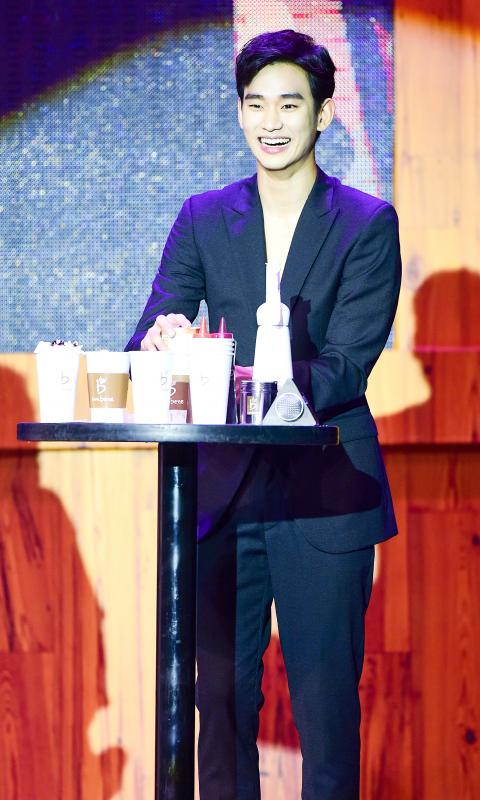South Korea will introduce a new law tomorrow banning the sale of coffee in primary and secondary schools to prevent students from consuming too much caffeine. This means that nobody, including teachers, will be able to buy caffeinated drinks on campus. The South Korean government hopes the ban will help promote healthy dietary habits among children.
According to CNN, students under academic pressure consuming excessive caffeine during exam periods is a common problem in South Korea. Other beverages high in calories or caffeine, such as energy drinks and coffee milk, have already been banned in schools. However, critics say students can easily walk a few minutes from their schools to buy such drinks.
South Korea’s domestic coffee market surpassed 10 trillion won for the first time ever last year, standing at 11.7 trillion won, or almost US$11 billion. Over 26.5 billion cups of coffee were served to South Koreans last year, with an average of 512 cups consumed per person. The figure is much higher than the average of over 100 cups yearly for each Taiwanese.

Photo: Wang Wen-lin, Liberty Times
照片︰自由時報記者王文麟
(Eddy Chang, Taipei Times)
南韓明日起將推出一項新法令,禁止中小學販售咖啡,以避免學生攝取過多的咖啡因。這意味著包括教師在內所有人,都無法在校園內購買含咖啡因的飲料,韓國政府希望該禁令能幫助學童培養健康的飲食習慣。
根據有線電視新聞網報導,南韓的學生在面臨課業壓力下,於考試期間攝取過量咖啡因的消息時有所聞。而其它高熱量或咖啡因的飲品,例如能量飲料或咖啡牛奶,早已禁止在校園販售。批評者則指出,學生從學校走幾分鐘,即可輕易買到此類的飲品。
南韓國內的咖啡市場去年首度突破十兆韓元,高達十一點七兆韓元,將近一百一十億美元。韓國人去年喝掉兩百六十五億杯咖啡,每人平均就喝掉五百一十二杯!該數字比台灣人的平均一百多杯要高出許多。
(台北時報張聖恩)

The Dutch introduced the Indian mango (Mangifera indica) to Taiwan in the 17th century. It is a green-skinned mango with thick fibers that get stuck in the teeth, but it boasts a rich aroma and a unique taste. In 1954, Taiwan’s Council of Agriculture introduced several mango cultivars from Florida, USA, including the Irwin, Haden, and Keitt varieties. After seven years of testing and domestication, the Irwin variety was chosen for promotion. Years later, the sample saplings started to bear fruit. These mangoes were large, with thin, vibrant red peels and golden pulp. The Irwin mangoes were mouth-wateringly sweet and

As the priest Antonius Hambroek stood in the dim chamber of Fort Zeelandia, his eldest daughter clung to him, her voice trembling. “Father, don’t go. They’ll kill you, and what will become of Mother and my sisters?” Outside, the sounds of Koxinga’s relentless canon siege boomed through the fortress. The defenders were on the brink of collapse. Starvation gnawed at their resolve, and the air carried the acrid stench of spent gunpowder and rotting flesh. Dutch reinforcements from Batavia had failed to arrive, leaving the garrison isolated and hopeless. Hambroek’s face was calm, though sorrow weighed heavily on his

對話 Dialogue 清清:今天中午我要多吃一點,不然晚上可能會吃不飽。 Qīngqing: Jīntiān zhōngwǔ wǒ yào duō chī yìdiǎn, bùrán wǎnshàng kěnéng huì chībùbǎo. 華華:怎麼了?為什麼會吃不飽? Huáhua: Zěnmele? Wèishénme huì chībùbǎo? 清清:今天大年初七,是「人日節」,傳統上結了婚的女兒要回家給父母送長壽麵,而且最好是素的,我姐姐會回來,只吃素麵,我應該很快就餓了。 Qīngqing: Jīntiān Dànián chūqī, shì “Rénrì jié,” chuántǒng shàng jiéle hūn de nǚ’ér yào huíjiā gěi fùmǔ sòng chángshòumiàn, érqiě zuìhǎo shì sù de, wǒ jiějie huì huílái, zhǐ chī sùmiàn, wǒ yīnggāi hěn kuài jiù èle. 華華:我還是第一次聽說有「人日節」呢!這是怎麼來的啊? Huáhua: Wǒ háishì dì yī cì tīngshuō yǒu “Rénrì jié” ne! Zhè shì zěnme lái de a? 清清:老一輩的人說,女媧是在第七天造出了「人」,所以今天可說是我們每個人的「生日」呢!生日快樂! Qīngqing: Lǎoyíbèi de rén shuō, Nǚwā shì zài dì qī tiān zào chūle “rén,” suǒyǐ jīntiān kěshuōshì wǒmen měi ge rén de “shēngrì” ne! Shēngrì kuàilè! 華華:你也是啊!欸?那前六天女媧都做了什麼呢? Huáhua: Nǐ yěshì a! Éi? Nà

As we bundle up in thick coats to stay warm during the winter, there is a population that has already adapted to extremely low temperatures. These people live in the remote city of Yakutsk, the coldest city on Earth. Yakutsk is situated in the heart of Siberia, which is the capital of the Sakha Republic in Russia. This historic mining city began to flourish in the 19th century following the discovery of gold deposits. Given its construction on permafrost, the average temperature in the city remains below 0°C for over half the year, with winter temperatures dropping to an astonishing -50°C.